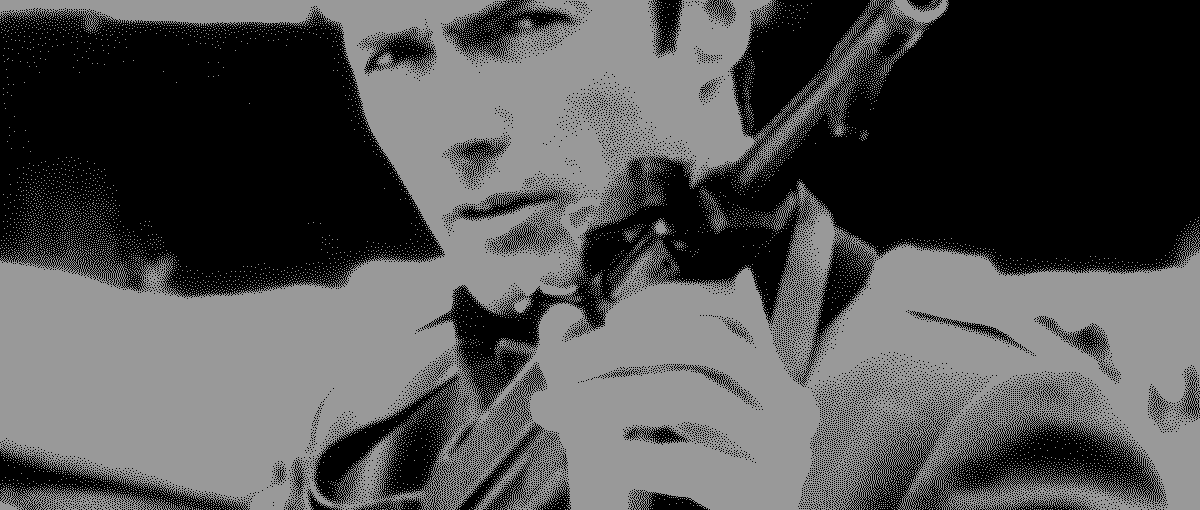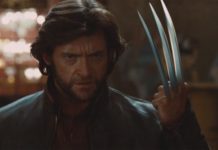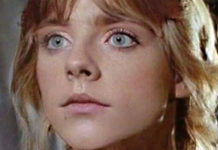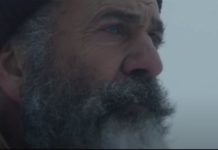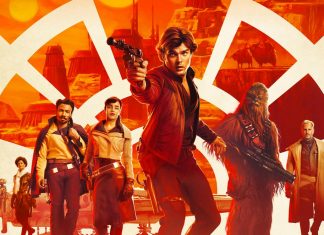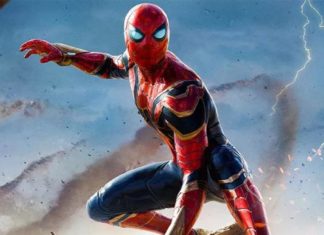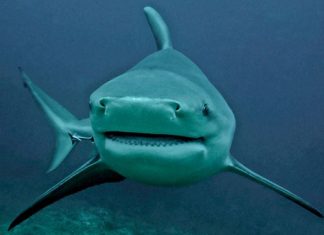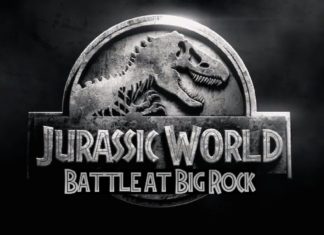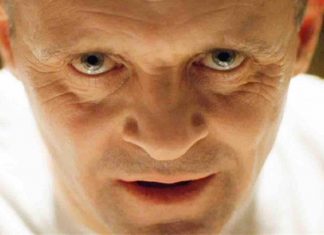I never caught Rogue One in theaters.
When I finally sat down to watch it (with a mind as open as the imaginary door Rod Taylor opens at the end of The Birds), I expected it to be decent, perhaps even enjoyable.
I also thought of a fun way to view it.
Since Rogue One was a “men on a mission” movie, which is a favorite genre of mine, I decided to do a double feature of Rogue One with Where Eagles Dare (1968), starring Richard Burton and Clint Eastwood.
In order to be doubly open-minded, I used my wife as a control subject.
My wife is an innocent when it comes to movies, so it is interesting to experience classics with her because she is watching them for the first time. Hence, we would watch Rogue One and Where Eagles Dare.
I would ask her a series of questions about the two movies, and we would decide which was better. For the record, my wife liked Star Wars: A Force Awakens and has a marketing background.
Here is a brief summary of her Q&A for both movies:
Rogue One
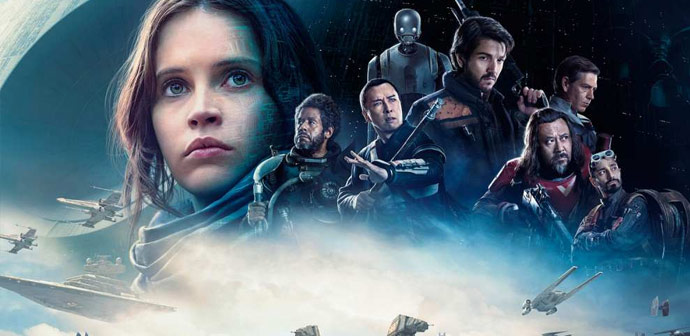
What was the movie about?
A girl has to blow up her dad’s space station. It was very much a man-movie for sci-fi fans.
Did any characters stand out?
No, I didn’t care when they died. I was not attached to anyone.
Can you name one of the characters?
I think the girl was named Jane. Maybe…
What did you think of this female character?
She could have just as well been a son, rather than a daughter.
Who were the bad guys?
Those with black costumes, I guess.
Who were the good guys?
Those with white costumes…but they seemed bad, too.
What did you think of the acting?
No one stood out.
What did you think of the special effects?
*Shrug*
What did you think of the directing?
The movie was a mess. In musical terms, it was not an orchestra. Rather, everyone seemed to be playing their own song.
Name one cool thing that stood out?
*Blank stare*
What was the overall mood of the movie?
I had no idea what was going on.
The movie made me feel stupid, like I was missing something.
It could have been shorter.
I felt like I wasted two hours, plus I almost dozed off. The story was lots of shooting for no apparent reason, other than they needed action scenes.
Then a lady in white said, “It gives us hope.” Wuuut?
Would you pay to watch this movie?
They should pay me to watch this movie. The cover of the movie looked interesting, but the story was muddy. If it made a billion dollars, I guess they had good advertising.
Where Eagles Dare
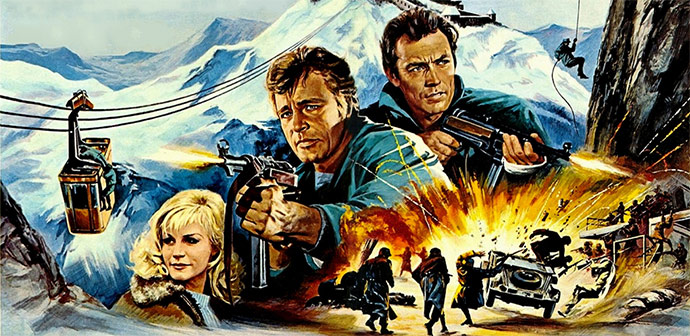
What was the movie about?
It was about trying to find German spies in the British military, but it didn’t seem like a man-movie. If there was an action scene, it felt logical rather than just stuff happening.
Did any characters stand out?
Everyone was separate and distinct. I was worried when they were in danger.
Can you name one of the characters?
Major Smith was very smart and authoritative. He kept my attention throughout the film and really threw me off in one scene. Clint Eastwood’s character also stood out to me. He had a clear role and was loyal and supportive to the Major.
What did you think of the female roles?
They were good characters, and it seemed necessary that they were women due to their roles as secret agents. They were beautiful, but they didn’t distract from the story. They added to it.
Who were the bad guys?
The Nazis.
Who were the good guys?
The British team.
What did you think of the acting?
Everyone was good. I cared about what happened to their characters.
What did you think of the special effects?
*Shrug*
What did you think of the directing?
I felt like I was invited to participate in the movie right from the beginning. When the plane was flying through the mountains, I felt like it was something I’d see if I was actually there.
Name one cool thing that stood out?
I thought the cable car scene was suspenseful. I’d never be able to do that.
What was the overall mood of the movie?
It was logical and consistent. Everything stemmed from a big idea and a strong focal point. I learned the story as I went along from the action and dialogue.
The characters went from challenge to challenge and the plot unfolded along the way. It was easy to watch, simple but intricate.
The fight scenes made sense and were not just there to be cool.
Would you pay to see this movie?
Sure.
Man Time, Baby
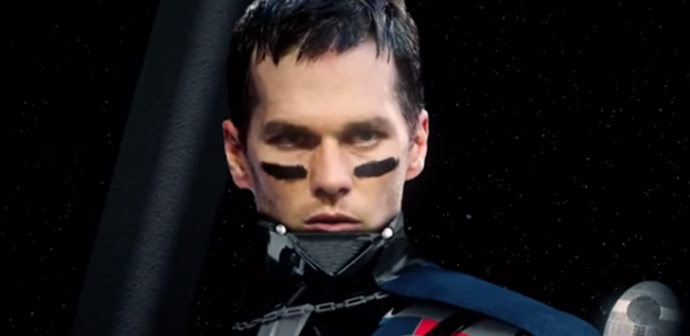
I found some of my wife’s answers pretty insightful.
It’s obvious that she does not know Star Wars from Storage Wars or she would have recognized things she didn’t understand in Rogue One (like the identity of the cartoon lady at the end who speaks of “hope”).
Rogue One should be able to stand on its own merits and make its story clear to all viewers, however, not just Star Wars fans.
On the other hand, I’m a Star Wars fan, and I found myself frustrated with the proceedings.
The fight scene in that desert town with the Star Destroyer hovering over it seemed to be there because it was time for an exciting action scene that wasn’t that exciting.
I have no idea why Forest Whitaker was in the movie. His opened a hatch at one point and later stood in a doorway and died (he also seemed to like tentacle molestation).
Apparently, the you-know-what-to-do plan included the mother getting shot so she could leave Jane Maybe an orphan.
The Death Star got powered down and shot 100 miles wide of its target so our heroes could more easily escape and say goodbye.
The robot could take 50 blaster shots at the end of the movie for maximum drama. Yet, an earlier scene showed the exact same model of robot being taken out with one shot…
But I Digress
Here are some comments from my wife that stood out to me:
What did you think of this female character?
She could have just as well been a son, rather than a daughter.
What did you think of the female roles?
They were good characters, and it seemed necessary that they were women due to their roles as secret agents. They were beautiful, but they didn’t distract from the story. They added to it
With all of the hoopla about strong female characters these days, my wife saw no point to the lead female character in Rogue One.
She felt Jane Maybe could just as well have been a man. Meanwhile, my wife found the female characters in Where Eagles Dare, a movie from 1968, to have purposes and add value to the story.
Wuuut?
- “I felt like I was invited to participate in the movie right from the beginning.”
- “I felt like it was something I’d see if I was actually there.”
- “I’d never be able to do that.”
- “I cared about what happened to their characters.”
Where Eagles Dare drew my wife into its story. She was invested in what was happening on screen.
As my wife is not a major Star Wars fan, she is also not a major World War II buff, yet she had no problem understanding the story, stakes and character motivations of Where Eagles Dare.
What was the overall mood of the movie?
It was logical and consistent. Everything stemmed from a big idea and a strong focal point.
Richard Burton was the focal point of Where Eagles Dare.
The big idea was to catch the spies.
Jane Maybe was the focal point of Rogue One. The big idea was to get the Death Star plans.
Both stories are built on simple principles.
Why Does One Succeed and The Other Fail?

Where Eagles Dare maintained its discipline. Everything that happened served the big idea and focal point. Rogue One confused being busy with serving its big idea.
It diluted its focal point among too many characters.
Why is Donnie Yen in the movie? For the Chinese market, that’s it.
Otherwise, he does not need to be there.
They could have removed him and let Forest Whitaker be there for the whole movie instead. Forest could have sacrificed himself at the end.
Then his character could have died to help defeat the Empire, rather than just give up and disappear from the movie.
Rogue One also comes off as a bit scattershot in other ways.
Does the Alliance need Jane Maybe or does it need the defector?
Is Jane Maybe in charge or is Casio in charge (even though Where Eagles Dare has alpha-male Clint Eastwood in it, he willingly takes a backseat to Burton to keep things streamlined)?
Do they need the Death Star plans or the father?
The Rebellion attacks… then it doesn’t want to attack… until it does want to attack again. Krennic is the bad guy… until the cartoon guy from all those old Hammer Horror films is the bad guy… until Darth Vader is the bad guy.
Are we supposed to care about the rebel soldiers who get introduced in the final act to go fight? Why should we? We have nothing invested in them.
Where Eagles Dare also has reversals and goals and characters that seem double-minded.
Yet, none of it comes off as confusing at the end of the day.
It comes off as calculated.
Alistair MacLean knew how to put together his plots.
If someone wants to love Rogue One, more power to them.
I love questionable movies, too (for example, I love the much-maligned James Bond movie A View to a Kill; mock away).
All I’m saying is that Rogue One is a bit of a cluster, objectively-speaking, which is disappointing. It should be no harder for a juggernaut like Disney to make a solid story rather than a story full of holes.
Let’s play around with a different approach:
- Have the rebel unit together from the start of the movie instead of picking up the band along the way.
- Lose the defector.
- Lose the father, too. If we want a strong female character, why go the route of making her another girl with daddy issues? Base her on someone like Hanna Reitsch, who was a test pilot for the Nazis. In this alternate Rogue One, Jane Maybe is an Imperial engineer working on the Death Star.
- She wants to defect.
- The Rebels have to infiltrate and get her out.
- The bad guys, who don’t include a distracting cartoon old man from those old Hammer Horror films, are trying to find the leak and plug it.
If the same basic storyline is kept intact, then Jane Maybe is killed by her own creation at the end.
But They #$%^ed It Up

At one point in Rogue One, the crew goes to kill Jane Maybe’s father (at least Casio does…maybe).
After a CGI ‘splosion fest, the thrust of a ship taking off blows Jane Maybe into a tarmac crevice where she could fall a long way to her death.
She dangles there for five seconds…and then pulls herself up, no worse for the wear. That little sequence sums up Rogue One for me — a lot of busywork to generate excitement that serves no point.
It is the same with the approach flight to that base. The weather was bad…and they almost crashed!!!!
So what?
Now?
At its worse, Rogue One also damages the masterpiece that is Star Wars.
When the Death Star blows up Alderaan in Star Wars, it is epic.
Is the Death Star cooler now that we know that wasn’t the first time it was used?
It turns out the Death Star was shooting things up all over the place (or at least 100 miles wide of its targets at low power).
Rogue One does not dovetail nicely into Star Wars.
It gets smashed in with a hammer.
Rogue One ends with Darth Vader trying to board the command ship to get the Death Star plans.
That means Star Wars begins with Darth Vader’s second boarding attempt.
Instead of a great cinematic out-of-the-blue entrance, Darth Vader’s entrance in Star Wars is now redundant.
Even little things like how formidable the AT-ATs were in The Empire Strikes Back are damaged. It turns out that you just need to shoot them a few times and they fall apart. If that is the case, why did the Rebels make it so hard to fight them in The Empire Strikes Back?
Ah, someone in the back row says, these AT-ATs were a different variation and the snow speeders have weak lasers and…
I am baffled as to how Rogue One ended up as it did. I don’t think it is the fault of the actors.
They did the best they could with what they had. I don’t think it is the fault of the crew.
Production values were excellent, and the film looks magnificent.
How about the screenwriter? I’d have to read the final draft of the screenplay to see if it was messed with before blame can be assigned there.
How about the director? He seems like a hired gun, and it is common knowledge that reshoots were done after wrapping, which can also be normal.
I’d probably put the responsibility at a higher level.
Basically, too many committees and spreadsheets spoiled the soup.
Another thing that didn’t help was shackling the story to the Star Wars movie that started it all. Rogue could only move within the limit of its chains.
I doubt they had those problems on Where Eagles Dare.
I find its meticulousness to border on obsessive-compulsive. The movie shows every step of things that could probably be glossed over (for example, how many things, from bombs to ropes to bags, are tied in Where Eagles Dare?).
Regardless, the movie works.
Alistair MacLean wrote the story.
Brian G. Hutton directed it, and Burton and Eastwood carried it along the way with their own ideas (for example, Eastwood actually didn’t like the script and requested a reduction of dialogue; there is eloquence in simplicity).
I doubt there were too many committees and spreadsheets involved with the process.
It also doesn’t hurt that Burton and Eastwood are absolute titans when it comes to charisma.
Two movies, both with men-on-a-mission premises.
One from the distant year of 1968.
The other a product of today’s advantages.
One ended up a classic.
The other ended up… not an orchestra.

